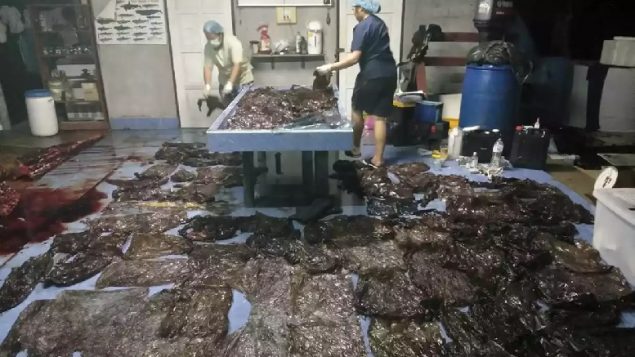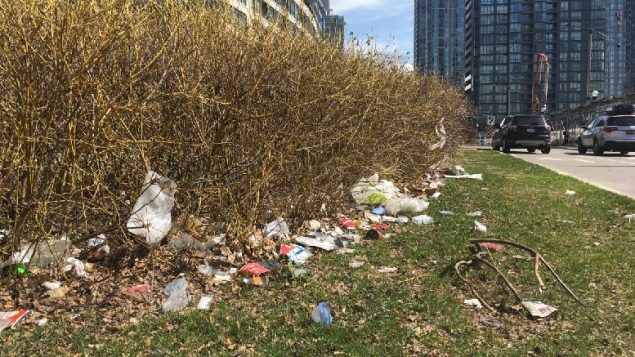
Montreal ban in effect
Montreal had banned thin and single use plastic bags earlier this year, but had added a grace period for stores and customers to comply.
That grace period ends today.
The ban on the common ultra-thin bags also includes all types of oxo-degradable, oxo-fragmentable, oxo-biodegradable and biodegradable bags. The problem with these is that they break down only under specific conditions and can last even longer in landfills than traditional plastic. Plastic doesn’t really break down and “return” into the environment, but merely becomes smaller and smaller plastic bits, ending up as microplastic that is now a serious problem especially in oceans and lakes.

In Thailand this month, people tried vainly to save a young pilot whale in distress, An autopsy showed the whale stomach filled with 80 plastic shopping bags, preventing digesting real food and so dying from a blocked digestive system. Photo: social media, Reuters
Stores that fail to comply with the ban on bags of 0.05 microns can be subject to hefty fines.
However, environmentalists point out that banning the ultra thin bags, means they’ll be replaced in many cases by thicker plastic bags which may also end up only being used once or twice but with up to six times more plastic.
France, Italy, and Rwanda have already banned plastic bags, as have the U.S states of California and Hawaii. Certain municipalities in Canada have also instituted bans including two areas near Montreal, and one in Alberta around the city of Ft McMurray.

Bushes in Toronto end up as unsightly garbage traps for wind-blown single-use plastic bags, cups and containers. Many cities are considering a variety of actions such as bans, to deal with these items .PHOTO-Leva Lucs/CBC
Other places like India have tried without much success to ban the bags.
The U.N estimates as many as five trillion plastic bags are used each year.
Efforts are also underway to ban plastic straws, and single use plastic cups, food containers, and utensils. Vancouver says its ban on such things will come into effect on June 1, 2019, the first Canadian municipality to do so.


